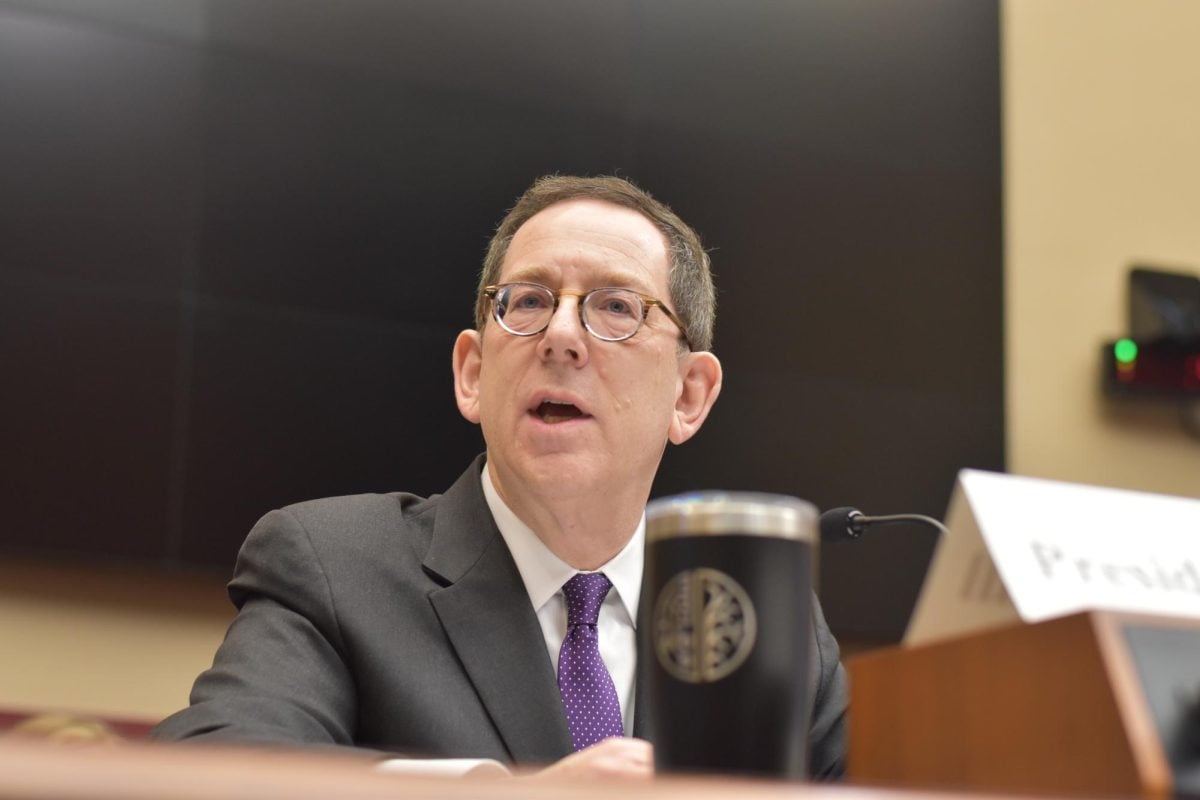Northwestern announced Wednesday that it has partnered with Coursera, a digital platform for massive open online courses.
The University’s foray into the growing field of MOOCs, along with 28 other American and global institutions, comes just months after NU’s November announcement that it would join a consortium of universities offering online courses for undergraduate credit. MOOC providers such as Coursera provide digital learning experiences and classes from top professors for free to millions of students.
“We’re helping shape the revolution of higher education,” said Jake Julia, associate provost for academic initiatives at NU. “It allows us to try new learning models … and do it with partners.”
NU students currently cannot gain course credit for MOOCs, although some other colleges that are not peer institutions of NU have recently begun to offer course credit for these online courses. Julia said the MOOC offerings would differ greatly from the for-credit online courses the University will begin offering next fall through Semester Online. Those classes will cost students tuition, unlike MOOCs, and will be offered only to NU and the peer institutions included in the consortium formed last fall.
“There really are differences in how you offer for-credit courses verses the massive open online courses,” Julia said. “I know that content won’t be crossing in the initial phases.”
But he said techniques professors develop in teaching MOOCs could potentially “transfer” to for-credit online courses in the future. He said one of the major goals of implementing these courses is to allow NU professors to showcase their work.
A definitive timeline for the launch of the courses has not yet been set, Julia said. However, on the NU Coursera website, several of the planned courses are advertised, ranging from digital image processing to the media.
McCormick Prof. Eric Masanet is teaching one of those courses, called “Introduction to Life Cycle Assessment.” Masanet said in a voicemail to The Daily that the class is a sustainability analysis course.
“It’s a really important skill, so hopefully it will be a public service to people interested in environmental analysis around the world,” he said in the voicemail. “It will add value to us in recruiting and showing that we have a presence in this important area.”
Julia said part of the University’s interest in working with Coursera was to advance the NU brand, particularly on the global level. According to a University news release, 16 of the 28 new institutions who joined Coursera along with NU are international institutions. This allows the MOOC provider to offer content across languages and subjects.
“MOOCs are designed exactly to do this,” Julia said. “I don’t think there’s anyone in Antarctica taking a MOOC yet, but all the other continents are covered.”
University Provost Daniel Linzer was unavailable for comment Thursday. In the University release, he emphasized the importance of MOOCs in the University’s attempts at global outreach.
“This partnership will permit us to promote innovative efforts by our faculty to explore new methods of teaching and reaching students wherever they are,” Linzer said in the release.
Julia said NU first began looking into Coursera and having discussions about MOOCs last summer. Peer institutions such as Duke University and Johns Hopkins University partnered with Coursera in July. The site launched in early 2012 with Stanford University, the University of Michigan, Princeton University and the University of Pennsylvania. Julia said professors were given the option to meet with Coursera co-founder Daphne Koller in an open forum during Fall Quarter, and many expressed interest in the idea.
Before NU formed its own official partnership with Coursera, some NU teachers had already developed their own MOOCs. Kellogg Prof. Gad Allon launched a MOOC in May 2012 about operations management on a provider called Udemy that 8,384 users are currently taking, as of Thursday evening. However, Julia said the professors teaching the MOOCs announced with Coursera are all new to teaching these kinds of courses.
Several NU students had not even heard of the emerging MOOCs as of Wednesday’s announcement. SESP sophomore Esther Lee said she would be interested in looking into the courses, especially since she would not be graded.
“It would be a good resource for others who aren’t able to come here,” she said. “It will put a positive light onto Northwestern as a university.”


















